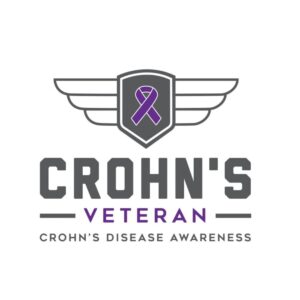5 Crohn’s Disease Self-Care Strategies
Danielle Gaffen, MS, RDN, LD
- Last Updated
Co-written by Robin Phipps
It can feel hard to take care of yourself when living with Crohn’s disease. This article shares 5 Crohn’s disease self-care strategies to help manage your condition and feel better!
How Do You Take Care of Yourself with Crohn’s disease?
It can feel hard to take care of yourself when living with Crohn’s disease. But when we care for ourselves, there is a sense of accomplishment and great well-being. Self care is a practice of establishing behaviors that bring about a feeling of calm, balance, and wellbeing. It encompasses all we do to stay physically healthy (such as hygiene, sleep, exercise, nutrition, and seeking medical attention when it’s needed), as well as the steps we take to manage our stress and promote our emotional and mental wellbeing.
5 Key Crohn’s Disease Self-Care Strategies
Here are 5 self-care strategies to focus on day-to-day that can help you manage your Crohn’s symptoms and feel in control of your well-being:
- Optimize Diet and Nutrition
- Get a Good Night’s Sleep
- Engage in Physical Activity and Exercise
- Follow Your Medical Treatment Plan
- Manage Difficult Emotions and Stress Management
1. Diet and Nutrition
A well balanced diet is an essential part of Crohn’s disease self care, as the food you eat directly impacts overall health and well-being. A balanced diet can help to support a healthy immune system and repair damaged cells. Good nutrition also provides us with the extra energy our bodies need to cope with stressful situations or illnesses.
Dietary strategies to add into your Crohn’s disease self-care routine:
- Eating small, frequent meals. When you have Crohn’s disease, fueling your body with healthful foods will make you feel and perform at your best (both mentally and physically), and provide you with lasting energy. This strategy also helps to promote digestion and absorption of nutrients, which is important as malabsorption of nutrients is often a symptom of Crohn’s.
- Consider meal planning. Cook large batches of food, and use leftovers to meal prep for the week or months ahead. Many prepared foods freeze really well! This will save on time and energy, and it ensures you always have nutritious, balanced meals for Crohn’s disease on hand.
- Include a balance of nutrients. When you have Crohn’s disease, it becomes especially important to prioritize a balanced diet rich in whole foods, healthy fats, lean protein, and complex carbohydrates.
- Consider Mindful Eating Practices. Observe how the food you eat makes you feel, and the signals your body sends about taste, satisfaction, and fullness. Becoming more attuned to your body in this way often helps people with Crohn’s disease to establish healthier eating patterns and improves overall health and well-being.
2. Getting a Good Night’s Sleep
Getting a good night’s sleep is an important part of Crohn’s disease self care. Quality sleep improves productivity and cognitive function, as well as boosts your mood and provides you with lasting energy to make it through the day.
When you sleep, your body releases hormones which help your body to repair damage that naturally occurs in your tissues during the day.
Quality sleep is particularly important for those with chronic conditions as it helps the mind and body recover. Research suggests that developing good sleep habits and managing sleep problems can help to improve many chronic physical and mental health conditions. Experts recommended that adults sleep between 7 – 9 hours a night, while younger ages need more.
Tips and Tricks to Living with Crohn’s disease to get 7-9 hours of sleep each night:
- Avoid caffeine for 8 hours prior to bedtime. Caffeine is a stimulant that can keep you awake, and the effects of caffeine can take six to eight hours to wear off.
- Engage in daily exercise. Even light exercise such as a walk around the block or yoga can help you fall asleep and stay asleep.
- Create a schedule and stick to it! This will help your body learn when it is time to fall asleep and when it is time to wake up.
- Establish a consistent bedtime routine and unwind. Try reading a book, taking a bath, or journaling.
- Avoid using screens for an hour before bed (phone, TV, computer). Bright lights at bedtime can cause stress or anxiety which disrupt your sleep.
3. Physical Activity and Exercise
The physical benefits of exercise and its importance in a self-care routine have been long established. Exercise and movement are also considered essential for mental fitness and emotional well-being.
Exercise stimulates the brain to release endorphins and dopamine (the “feel good” hormones) which helps to reduce stress, improve mood, and boost energy levels. By moving your body more often, you are creating a happier, healthier mind.
Having a chronic health condition is challenging, but you can still be fit and enjoy physical activities! In fact, physical activity/exercise may significantly help your condition!
In general, people with IBD are encouraged to engage in low to moderate intensity exercise. Remember to move your body in a way that feels good and brings you joy, whether that means spending time in nature or joining a group class at the gym.
Below are some activities to add into your Crohn’s disease self-care routine:
- Bicycling
- Yoga
- Walking/jogging
- Swimming
- Light weight training
How can physical activity and exercise help people with Crohn’s?
- Improved sleep
- Less stress / anxiety and depression
- Less pain associated with IBD
- Less constipation
- More energy / less fatigue
- Muscle strength
- Stamina and endurance
- Good cardiovascular health
- Increased bone mass density, as many people with IBD experience bone loss
4. Medical Treatment Plan
Your healthcare team is an essential component to your Crohn’s disease self care routine and overall health, particularly for those living with chronic illness.
A Gastroenterologist will develop a personalized treatment plan for you based on your type of IBD, the severity of the disease, and your diagnostic results, talking to you about whether or not your Crohn’s disease can be managed without medication.
Because IBD is a chronic disease and often requires long term treatment, it is important to follow up regularly with your gastroenterologist and follow the treatment plan as written – even when symptoms subside.
5. Dealing with Difficult Emotions and Stress Management
Research suggests that people living with IBD are two to three times more likely to be affected by stress/anxiety or depression. A psychologist or mental health provider can help you to cope with the emotions and stresses that often result from IBD. They might walk you through different techniques for stress management and decide if a medication could be helpful to you.
Did you know your mental health can manifest as physical symptoms? Self care can play a vital role in maintaining your emotional and mental health (and thus your physical health), particularly during times of stress.
The Gut-Brain Connection
A relatively new and exciting avenue of research has provided a great deal of insight into IBD and emotional and mental wellbeing.
The gut, often referred to as the second brain, is home to trillions of living microbes that have many functions in the body, synthesizing neurotransmitters that send chemical messages to the brain to regulate sleep, pain, appetite, mood, and emotion. This intricate network of interactions between the gut and brain is formally called the gut-brain connection.
We still have more to learn, but research suggests that the foods we eat influence the health of gut microbe colonies, which subsequently influences your brain and, thus, your mental and emotional health.
Here are some therapeutic strategies for mental health and emotional wellbeing:
- Cognitive Behavioral Therapy (CBT), gut-directed hypnotherapy, mindfulness-based therapy, and medications that can be prescribed in addition to these therapies.
- Meditation, Diaphragmatic Breathing, and Progressive Muscle Relaxation techniques may help complement treatment
Engaging in a regular self-care routine has been linked to numerous health benefits, including less stress, a stronger immune system, improved cognition, and better self esteem.
Take Home Message
When it comes to living with a chronic condition, such as Crohn’s disease, self care becomes even more essential. There are so many ways that you can practice self care, from establishing a consistent bedtime routine to fueling your body with healthful foods to holistic strategies that ease your mind and relieve stress.
Here are a few more resources that touch on the strategies mentioned above:











































